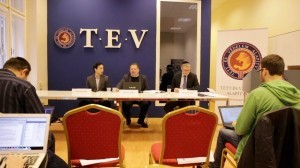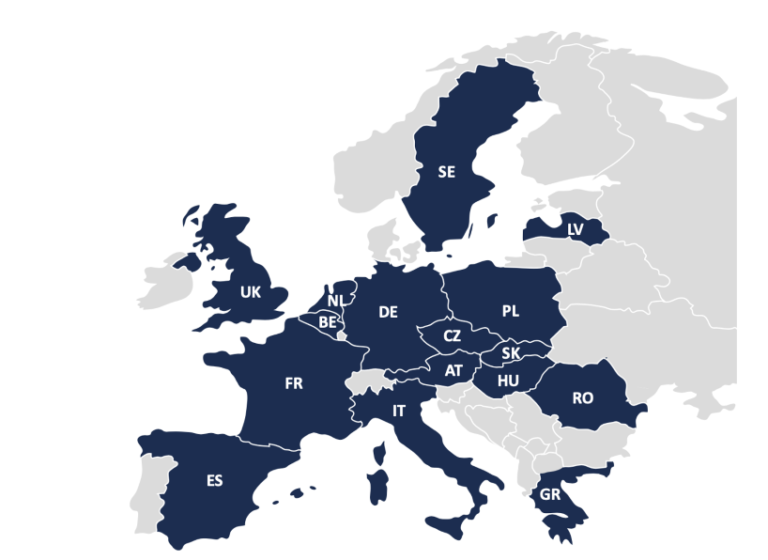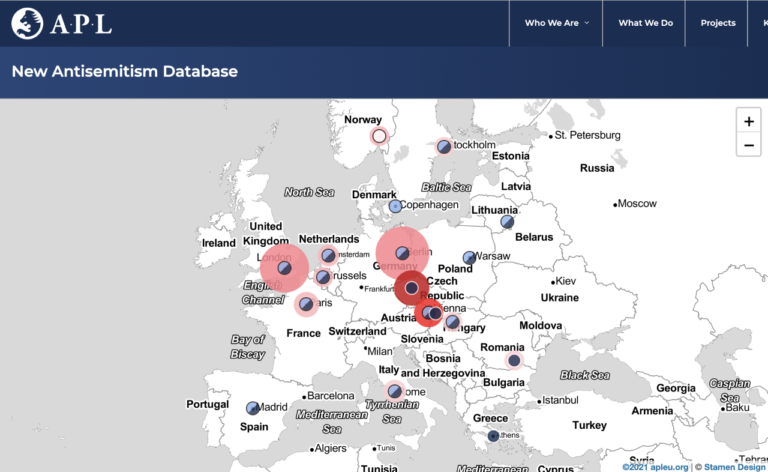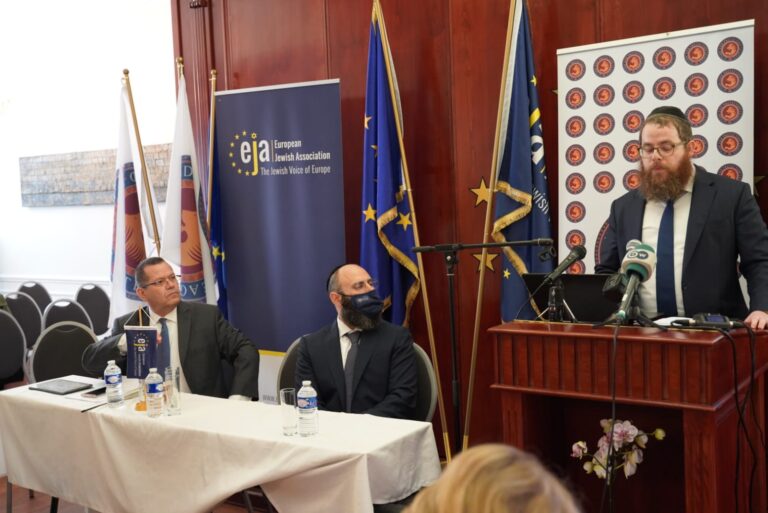 The rate of groups both completely immune to and highly responsive to anti-Semitism displays a rising tendency compared to data from a year before, reveals the survey commissioned by the Action and Protection Foundation (TEV) and carried out by Median Institute for Public Opinion and Market Research. The data, collected at the end of last year (for the second time after 2013), shows a strengthening position of Jobbik (Movement for a Better Hungary, a far-right party) and the lasting effect of the monument on Szabadság Square. Signs of polarisation are apparent even despite radical changes in anti-Semitic attitudes in the past year.
The rate of groups both completely immune to and highly responsive to anti-Semitism displays a rising tendency compared to data from a year before, reveals the survey commissioned by the Action and Protection Foundation (TEV) and carried out by Median Institute for Public Opinion and Market Research. The data, collected at the end of last year (for the second time after 2013), shows a strengthening position of Jobbik (Movement for a Better Hungary, a far-right party) and the lasting effect of the monument on Szabadság Square. Signs of polarisation are apparent even despite radical changes in anti-Semitic attitudes in the past year.
The representative research commissioned by TEV, conducted on a sample of 1200 respondents, shows a minor increase in the proportion of people with anti-Semitic views in Hungary in the past year. The rate of those who think Jews are “disagreeable” was 23% in the current research, compared to 21% a year ago. Typically, public opinion is only moderately interested in problems of Jewish public life, while people with anti-Semitic views are highly overrepresented (69%) among Jobbik voters. This emotional anti-Semitism within the society is, to a significant degree, the manifestation of general xenophobia: the respondents rejecting other ethnicities to a higher degree were likelier to dislike Jews.
The opinion of the Hungarian population is strongly divided about who is responsible for the Second World War tragedy of the Jewry: 51% marked Hungary in this question. In comparison, 40% hold Germany exclusively accountable. 52% of the respondents were against building the monument on Szabadság Square, while 34% supported it. A more alarming tendency is that the support of openly Holocaust-denying statements rose from 6-8% in 2006 to 12-15% in 2014.
Dániel Bodnár, President of the Board of Trustees of TEV, commented: “It is the mission of  TEV to survey the state of anti-Semitic prejudices in Hungary year after year. Our purpose is to get a clear picture of this phenomenon through fully objective research and not think about it based on subjective impressions. The present research offers this clear picture: simultaneously, there is a minor improvement and a deteriorating tendency. While the number of people immune to anti-Semitic statements increased, the proportion of those who agree with such statements also rose. However, if we look at data from last year, we can say that, on the whole, Hungarian society has not become more tolerant.”
TEV to survey the state of anti-Semitic prejudices in Hungary year after year. Our purpose is to get a clear picture of this phenomenon through fully objective research and not think about it based on subjective impressions. The present research offers this clear picture: simultaneously, there is a minor improvement and a deteriorating tendency. While the number of people immune to anti-Semitic statements increased, the proportion of those who agree with such statements also rose. However, if we look at data from last year, we can say that, on the whole, Hungarian society has not become more tolerant.”
Although similar research was also conducted by FRA (European Union Agency for Fundamental Rights) and Hungarian NGOs, it was relevant in presenting a given social attitude at a given time. The research commissioned by TEV goes beyond it in that, thanks to repeated data collection, it is also appropriate for presenting ongoing tendencies.
 “We saw an increase in the spreading of anti-Semitism in Hungary between 2006 and 2010, followed by a minor decrease between 2011 and 2014. This, in my view, is also due to the fact that the Jobbik has been a Parliamentary party for the past five years, so many people might think they ‘have nothing more to do with this problem’, for a party that has often made anti-Semitic statements is now representing their views. One remarkable result of the research is that it shows the extent to which the relationship between the Jewish community and the government influenced public opinion. In 2014, mostly because of the Memorial Year of the Holocaust, several events affected the issue, unfortunately, more to the negative side. Despite the historical memory of the Holocaust being continuously part of public discourse, the number of Holocaust deniers and Holocaust relativisers is steadily rising.” In the opinion of TEV’s leader, the way we speak about the Holocaust and how this subject appears in the public discourse is counter-productive and triggers negative effects, despite all the efforts of Jewish organisations. “For this reason precisely, it is time Jewish communities changed their discourse about this issue.” – Dániel Bodnár opined.
“We saw an increase in the spreading of anti-Semitism in Hungary between 2006 and 2010, followed by a minor decrease between 2011 and 2014. This, in my view, is also due to the fact that the Jobbik has been a Parliamentary party for the past five years, so many people might think they ‘have nothing more to do with this problem’, for a party that has often made anti-Semitic statements is now representing their views. One remarkable result of the research is that it shows the extent to which the relationship between the Jewish community and the government influenced public opinion. In 2014, mostly because of the Memorial Year of the Holocaust, several events affected the issue, unfortunately, more to the negative side. Despite the historical memory of the Holocaust being continuously part of public discourse, the number of Holocaust deniers and Holocaust relativisers is steadily rising.” In the opinion of TEV’s leader, the way we speak about the Holocaust and how this subject appears in the public discourse is counter-productive and triggers negative effects, despite all the efforts of Jewish organisations. “For this reason precisely, it is time Jewish communities changed their discourse about this issue.” – Dániel Bodnár opined.
To read the research in Hungarian click here. Avaliable in English from 27 April.







